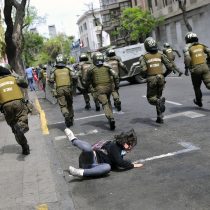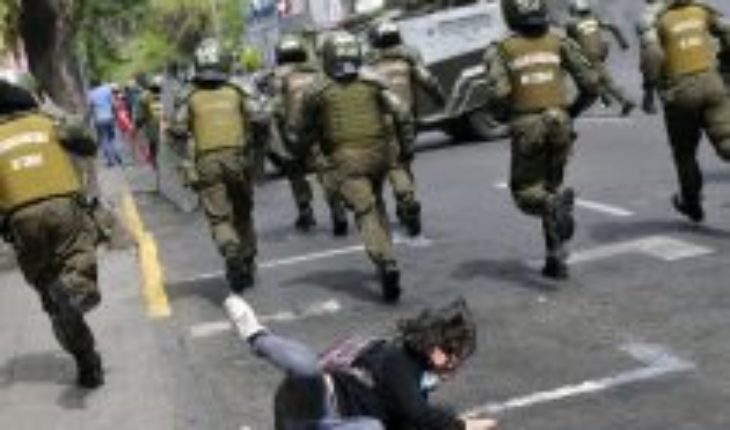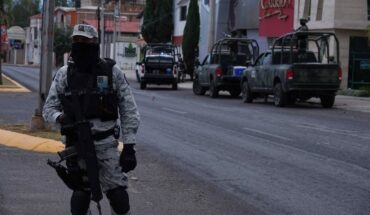
Amnesty International (AI) on Thursday denounced Chile’s 2019 with the worst human rights crisis since the dictatorship of Augusto Pinochet (1973-1990) and that demonstrations that have been calling against the equality met with a “strong” police crackdown.
The NGO also clarifies in its annual report on the human rights situation in America that “State forces sought to justify their use of violence against protesters by claiming that such measures were necessary to protect infrastructure and private property in the face of damage and vandalism.”
“It’s not a good balance. The annual report this year is a balance sheet of the entire region of the Americas. And we see that there is a trend that targets increasingly intolerant, increasingly rights-restrictive governments, and in particular concerns about the right to protest and the right to require asylum. And, unfortunately, on both issues we see that Chile has also joined that list of intolerant governments in which repressive action of protests since the social outburst of October, and even before, was something that has been seen and that makes us join this sad trend in the region,” said Amnesty International’s Executive Director in Chile, Ana Piquer, in an interview with La Tercera.
The AI report that made the Government uncomfortable
It should be recalled that last November Amnesty International issued a harsh report that concluded that human rights violations have been committed in Chile during the social outburst and that force was used excessively with the intention of “punishing” Protesters.
The organization said both the Army and the Carabinieri committed “widespread attacks” and assured that human rights violations “are not isolated or sporadic facts,” but respond to a pattern and show a “degree of coordination.” Following the report, the Government, Carabineros and the FF.AA. categorically rejected the agency’s conclusions.
For Ana Piquer, “the initial reaction was rather to criticize rather than embrace the recommendations and see what of that could be used to do something different. What is interesting is that the subsequent reports mostly have great coincidences, in the sense that there have been serious human rights violations, which are in no case isolated facts, which cannot be said to be something widespread or massive. They’ve all been told in some way, maybe by phrasing it differently. But the thesis that these are isolated facts that have to be brought to justice and that this is the only answer, is absolutely insufficient and this was demonstrated by the reports. So I hope that by having this full battery of reports showing this, the government can somehow take the flag to take real action to prevent it from happening anymore.”
The criminalization of protest
The wave of protests that Chile is experiencing erupted on October 18th in response to the increase in the metro fare and then became a claim against the government of Sebastián Pinera and an economic model that fosters inequality and does not guarantee basic services such as the allud and education.
According to Piquer, police violence or the criminalization of protest in general has been cross-cutting to all governments “but we do see that since the government of President Piñera has been a deepening of such measures. And since the social outburst began in October, an even more serious worsening. In fact, so much so that Amnesty International’s Office for the Americas is making the decision to send a crisis response mission so that we can document what was happening on the ground. And what we saw is really very serious, very widespread and unfortunately we don’t see that it’s going to get any better.”
To ensure that human rights are safeguarded for the coming months and that Amnesty International’s executive director in Chile is predicted as critics, said that “first, the ability to take real action to ensure that Carabineros complies with the compliance with human rights standards for the use of force. The Government has explained many of the measures it has taken, orders it has given, the existence of protocols, but what one sees on the ground is that they are still not complying even with the same protocols that Carabineros has, let alone the standards use of force, from a human rights perspective.”
“So what is urgent is real control on the part of the Government in terms of ensuring that police action meets human rights standards. And that’s what we haven’t seen. Nor have we seen an effective condemnation of police violence on the part of the government. There has always been, in some way, an attempt to justify, always trying to minimise by the way of saying that they are particular cases, that justice must be allowed to act, that of course justice must be allowed to act, but that cannot be the only answer. Because at the level of gravity of what we’re seeing, it’s an absolutely inadequate response, and that’s what we expect to see. We want to see that same scandal caused by the acts of violence, one sees it when it is agents of the state who are attacking people who are demonstrating peacefully,” he added.
In a state of emergency, abuses increased
The organization, which sent a country observation mission in mid-November, said that during the ten days when the state of emergency was ruled and when the military was in charge of security “dramatically increased the number of abuses committed by the State” and that at the end of the year “victims of human rights violations, especially at the hands of the Carabineros, numbered in the thousands.”
These abuses range from the use of lethal weapons against protesters, the use of potentially lethal ammunition and tear gas “unjustifiably, widespread and indiscriminately”, attacks on journalists and violence against people already being had arrested, AI added.
With regard to the reforms announced by the government in Carabineros, Piquer stated that “an example of this – of transformations – is the creation of the Unity and then The Human Rights Directorate of Carabineros, which one can see as something that is positive, which is interesting, but that in practice the acting of special forces on the ground has made no difference. And in that sense we’re worried. May these be reforms that effectively make a difference in police action on the ground, and that peaceful people can do so safely and without their main fear being the actions of state agents.”





